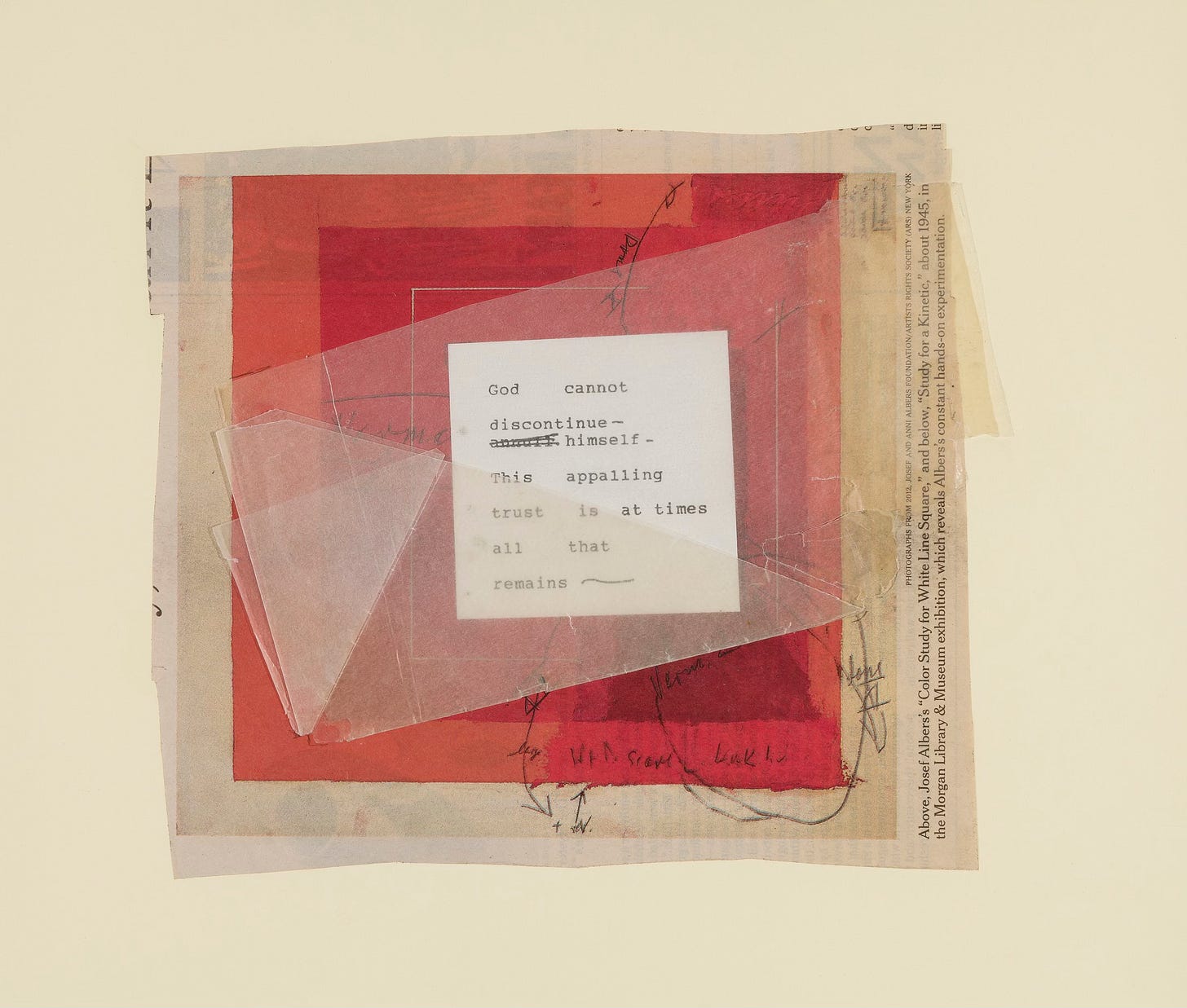Notebook: Ephemera
Ephemeralists arise!
Janet Malcolm, Appalling Trust (from The Emily Dickinson Series), 2013, Paper collage, 7 1/4 X 8 inches. Private Collection, New York. Courtesy Bookstein Projects, New York. Image: Etienne Frossard, New York
Recently I was reading The Panacea Review, a new literary magazine edited by John Moran, whose amazing story “Clog Warrior”—written, I think, when he was a college student—I published long ago in my magazine Little Star. (The Panacea Review is actually based in real-life Panacea, Florida, a wink at its “P——— Review” antecedent.) The journal is, it explains, “themed around literary ephemera: letters, diaries, notes, and all the flotsam and jetsam that rarely leaves the drawer.” This is familiar enough territory for those of us drawn to literary arcana, harking back to the commonplace book and other artefacts of writing and memory, but about a third of the way in the real subject disclosed itself: we arrive at an “Ephemeral Manifesto,” attributed to the team of Duke James, Eleanor Wang-Morley, and Fontenot Labrush, a rousing declaration of allegiance to ephemera as a last fragile barricade against the “greedy machines,” “the robots, the corporations, the state,” who “wish to dream our dreams”—a last stand against “the final irreversible falling into the hermetically sealed television tube.”
We mean resistance to the totalizing powers of technological transformation—which, in the realm of arts and letters, includes resistance that makes use of paper.
We hold the letters passed hand to hand! We guard our filing cabinets with key! We carry our hearts in fortressical envelopes!
Paper, the stuff of ephemera, captures the bond between language and its organic human origin.
We must scribble in squirreled ways that flummox the vast silicon mind! … We are the parents, not the children, of these digital deities. We remain ineffably wired—we remain the ultimate cosmic hallucination—we will endure as wise tricksters, furtive mammals scampering through the empire of data.
We enter the future with half our hearts. Some parts remain hidden.
As to the promise of perfectible art from AI, although “the computers will have something to say,” indeed, “they will have more to say than we did,”
We will be left with what they lack—fear and awe.
The human body is the site of artistic and intellectual struggle. Technology reduces friction—but friction is process.
If no one stands outside Big Data’s glittering funhouse, how will we know if, when we walk its mirrored halls, we see ourselves?



